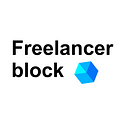Blockchain Digital Payments: Fast-Forwarding the Revolution in the Financial System
Blockchain technology has had a transformative impact on various industries, and one of the areas where its potential is truly revolutionary is the financial sector. Blockchain’s inherent characteristics, such as transparency, security, and decentralization, have paved the way for a new era of digital payments. One particular innovation gaining momentum is blockchain-based digital scan pay, a solution that holds the promise of fast-forwarding the revolution in the financial system. In this blog, we will explore how blockchain digital scan pay is reshaping the way we conduct financial transactions.
What is Blockchain Digital Scan Pay?
Blockchain digital scan pay is a payment method that combines blockchain technology with scanning capabilities, enabling seamless, secure, and efficient digital transactions. The technology allows users to make payments by scanning QR codes or other unique identifiers, which are associated with specific transactions or digital assets. These scans are then recorded on the blockchain, ensuring transparency, immutability, and integrity throughout the payment process.
How is Blockchain revolutionizing financial transactions? Well through enhanced security, and fraud prevention, Blockchain digital scan pay leverages the inherent security features of blockchain technology, including cryptographic encryption and decentralized validation. By removing intermediaries and relying on immutable transaction records, it mitigates the risk of fraudulent activities, such as identity theft, tampering, and double-spending. As a result, financial transactions become more secure and trust is established between parties, which is especially beneficial for online payments.
Traditional financial transactions often involve multiple intermediaries, resulting in complex processes, delays, and high transaction fees. With blockchain digital scan pay, the need for intermediaries is significantly reduced, if not eliminated entirely. Smart contracts, self-executing agreements built on the blockchain, automate payment processes, eliminating the need for manual intervention. This streamlines transactions, reduces costs, and accelerates the speed at which funds can be transferred, benefiting individuals and businesses alike.
Digital scan pay has the potential to simplify and expedite cross-border transactions, which are typically burdened by regulatory complexities, high costs, and lengthy settlement periods. By utilizing blockchain’s decentralized nature and eliminating the need for intermediaries, transactions can be conducted directly between parties, reducing costs and increasing efficiency. Moreover, the transparency and immutability of blockchain records enhance regulatory compliance and reduce the risk of money laundering and other illicit activities.
One of the most promising aspects of blockchain digital scan pay is its potential to offer financial inclusion. Traditional banking systems often exclude individuals and communities with limited access to financial services. Blockchain, being decentralized, can facilitate peer-to-peer transactions without the need for traditional banking infrastructure. With the widespread adoption of smartphones and QR code scanning capabilities, individuals can participate in the global economy, enabling greater financial inclusion and empowerment.
What Challenges Should be Considered?
While the potential is immense, there are still challenges and considerations to be addressed, such as network scalability issues, as the current infrastructure may not handle a high volume of transactions at the speed required for widespread adoption. Solutions like layer-two protocols and off-chain transactions are being developed to address this challenge.
To ensure mass adoption, user-friendly interfaces and seamless integration with existing payment systems are crucial. Simplified and intuitive applications are necessary for users to embrace blockchain digital scan pay without the need for extensive technical knowledge.
As blockchain technology disrupts traditional financial systems, regulatory frameworks need to be established to address legal and compliance concerns. Governments and regulatory bodies must work in tandem with industry creators and developers to discover a balance between innovation and consumer protection. This fast forward technology holds the potential to revolutionize the financial system by offering enhanced security
Team directo3, Join us https://directo3.xyz
